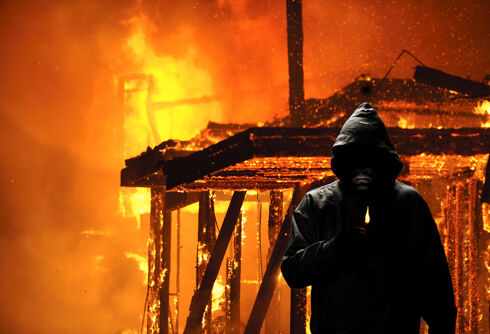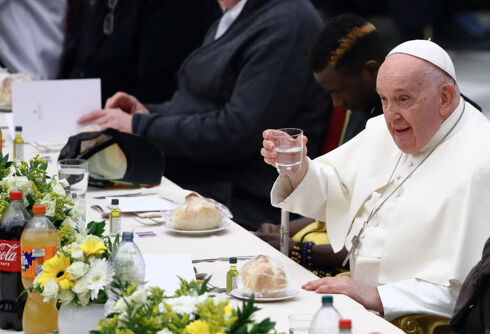Pushkin, Tolstoy, and Chekov beware: Putin is coming for the books.
The latest front in Russian President Vladimir Putin’s war on LGBTQ+ people is purging books with LGBTQ+ content from Russia’s bookshelves and the internet.
Related:
“My Little Pony” convention raided by Russian authorities for “LGBT propaganda”
A pony in the show has a rainbow mane, and Russian television speculates that that was enough to inspire the raid.
A new council set up by the Russian Book Union, a nominally independent body representing publishing professionals, has been tasked with conforming the publishing industry to Russia’s trifecta of anti-gay laws and rulings, according to France 24.
Global perspectives delivered right to your inbox
Our newsletter bridges borders to bring you LGBTQ+ news from around the world.
The council’s first act was to ban the sale of novels A Home at the End of the World by Michael Cunningham, Giovanni’s Room by James Baldwin, and Heritage by Russian writer Vladimir Sorokin.
The council decided those works contravened article 6.21 of Russia’s code of administrative offenses, which prohibits “propaganda” advocating “non-traditional sexual relationships.”
Human Rights Watch says the law has been widely used to ban “sharing positive and even neutral information” about LGBTQ+ individuals and organizations.
While the Kremlin did not directly establish the new council, it is stocked with its representatives, including members of the Russian military and Orthodox Church who are reliably subservient to Putin and his authoritarian government.
Putin’s anti-LGBTQ+ campaign began in earnest in 2013 with the passage of the original law banning “gay propaganda” allegedly aimed at children. It was expanded in 2022 to ban any depiction of same-sex relationships in popular media, including advertisements, films, and video games. Last year, Russia’s Supreme Court ruled the so-called “International LGBT movement” is a terrorist organization.
While books were also covered under the propaganda law’s expansion in 2022, the esteem Russians hold for literature and the fraught history of censorship under Soviet rule meant officials were wary of targeting books in the same way as more popular forms of information and entertainment like the internet and television.
The new council’s focus on books is “part of a broader information-warfare crackdown related to the anti-gay-propaganda law”, said Jeff Hawn, a Russia specialist at the London School of Economics.
In Russia, “Literature has always enjoyed a special status because censorship of books was a very important part of the Soviet regime,” Hawn said. “And freedom for writers after the fall of the Soviet Union was enshrined.”
Mass media, however, has been a priority up until this point, according to Stephen Hutchings, a specialist in Russian and Soviet cultural history at the University of Manchester.
“What people see in the news [and the] press is much more significant, in that regard, than what is portrayed in fictional writing,” said Hutchings. “So it’s more pressing to control these platforms.”
But the publishing world has been waiting for the other shoe to drop.
In early 2022, an independent Russian journalist published a list on Telegram of 250 books at risk of being withdrawn from sale with adoption of the expanded propaganda law. Authorities at the time described it as alarmist.
All three recently banned novels were on the list.
Don't forget to share:















